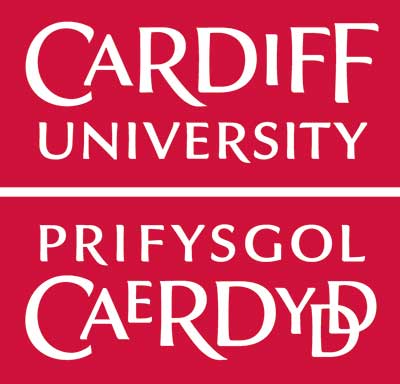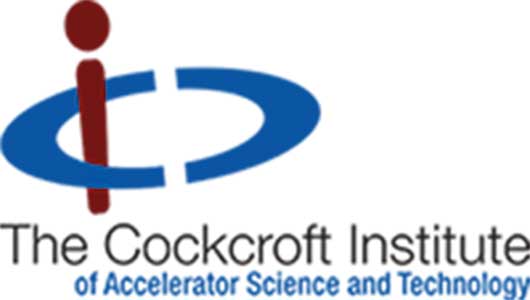About the award
Design and Manufacture of Broadband 3D Multilayer Metamaterials for Microwave and mm-wave Application
Statement of research
Joint supervisors: Prof Alastair P Hibbins, Prof J Roy Sambles
External partner: John Davies (Thales)
Objective: To develop broadband metamaterial designs for antenna and radome applications using additive manufacturing techniques.
The use of additive manufacturing techniques to create novel broadband metamaterial designs is of great interest for various applications in the microwave, millimetre wave range and beyond. Metamaterials typically suffer from narrow bandwidths, are inhomogeneous and have incident angle and polarisation dependence. There is a need to overcome these obstacles to enable better performance of metamaterials and increase areas for application. Three dimensional and /or multi-layer metamaterials offer a way to overcome the limitations of conventional two dimensional metamaterials. In addition, 3D metamaterials promise better efficiency for metamaterials with a prospect for lower permittivity structures for radome applications.
Fabrication of 3D materials are currently conducted using multilayer electron beam lithography or direct laser writing which limits the size and frequency of operation of fabricated devices. Additive manufacturing techniques will be studied with the aim to obtain convenient fabrication techniques comparable to current electron beam processes in order to realise larger 3D metamaterial structures at reasonable cost for industrial application.
Modelling of 3D metamaterials also poses a challenge. Enhanced modelling techniques are required to accurately predict the performance of structures designed. Full wave methods and quasi-optical techniques will be explored to realise adequate models for prediction of measured results from fabricated samples.
The initial primary tasks will comprise
1. Investigation of broadband metamaterials, potentially via the use of multilayer or 3d metamaterials that enables multiple resonances to be cascaded to extend the bandwidth response. Emphasis will be on relatively constant constitutive parameters across the operating frequency band.
2. Investigation of effective dielectric constant of metamaterials embedded in a substrate. It is of interest to deploy relatively low dielectric constant materials for antennas and radomes. Typically, materials with dielectric constants of 4 or less are used to construct antennas and radomes in either a homogeneous or multilayer sandwich structure. Embedding metamaterials in dielectric substrates offer the possibility of reducing the effective permittivity of the substrates. Following on from the previous task, a broadband arrangement of metamaterials should be embedded in a chosen substrate to observe the impact on the effective dielectric constant.
3. Investigation of polarisation twisters using metamaterials embedded in a substrate. Typical twisters use four overlaid printed grids of conductors. This classic design suffers from poor performance at higher frequencies due to coupling effects and is also difficult to manufacture at these frequencies due to reduced dimensions.
4. Investigation of manufacturing techniques for 3d Metamaterials. The use of conventional and innovative manufacturing techniques for metamaterials is also of interest. Low cost production processes should be investigated and the role of additive manufacturing should be highlighted in the application of new manufacturing techniques. The role of any other relevant emerging technologies for the prototyping and manufacture of antennas and radomes with metamaterials will be of great benefit to the aerospace industry and is worth investigating.
The studentship is part of the UK’s Centre of Doctoral Training in Metamaterials (XM2) based in the Departments of Physics and Engineering on the Streatham Campus in Exeter. Our aim is to undertake world-leading research, while training scientists and engineers with the relevant research skills and knowledge, and professional attributes for industry and academia.
The 4 year studentship is funded 50:50 by an industrial sponsor and the College of Engineering, Mathematics and Physical Sciences at the University of Exeter. It is of value around £105,000, which includes £13,000 towards the research project (travel, consumables, equipment etc.), tuition fees, and an annual, tax-free stipend of approximately £16,500 per year for UK/EU students.
Eligible candidates: UK/EU nationals only due to industry sponsor requirements.
Exeter has a well-established and strong track record of relevant research, and prospective students can consider projects from a wide variety of fields:
- Acoustic and Fluid-dynamical Metamaterials
- Biological and Bio-inspired Metamaterials
- Graphene and other 2D Materials, and related Devices
- Magnonics, Spintronics and Magnetic Metamaterials
- Microwave Metamaterials
- Nanomaterials and Nanocomposites
- Optical, Infra-red and THz Photonics and Plasmonics
- Quantum Metamaterials
- Wave Theory and Spatial Transformations
Please visit www.exeter.ac.uk/metamaterials to learn more about our centre and see the full list of projects that we have on offer this year.
The studentship is subject to funding availability.
About XM2
Metamaterials are fabricated microstructures having properties beyond those found in nature. They are an important new class of electromagnetic and acoustic materials with applications in many technology areas: energy storage and improved efficiency, imaging, communications, sensing and the much-hyped ‘cloaking’. Having recruited over 80 PhD researchers since 2014, the EPSRC Centre for Doctoral Training (XM2) (www.exeter.ac.uk/metamaterials) will admit the next cohort of PhD students in September 2019.
The first year of the studentship includes an assessed, stand alone project, and a substantial programme of training. Students will choose from a wide range of taught modules, and participate in academic and personal development skills-based workshops, together with creativity events and conference-style meetings. The cohort will also be expected to disseminate their results to the international community via high-impact publications and international conferences. They will spend time working with our academic and industrial partners. Full details of the programme are available here.
The University of Exeter combines world class research with excellent student satisfaction. It is a member of the Russell Group of leading research-intensive universities. Formed in 1955, the University has over 20,000 students from more than 130 different countries. Its success is built on a strong partnership with its students and a clear focus on high performance. Recent breakthroughs to come out of Exeter’s research include the identification and treatment of new forms of diabetes and the creation of the world’s most transparent, lightweight and flexible conductor of electricity. Exeter is ranked amongst the UK’s top 10 universities in the Higher Education league tables produced by the Times and the Sunday Times. It is also ranked amongst the world’s top 200 universities in the QS and Times Higher Education rankings.
How to apply
http://www.exeter.ac.uk/studying/funding/award/?id=3444
Application criteria
Eligible applicants: UK/EU nationals only.
Applications are made to the Metamaterials programme for a PhD in Physics/Engineering. We invite candidates to specify their project(s) of interest at the time of application.
Please ensure to upload ALL items listed below through our application system. Incomplete applications cannot be processed.
- Degree transcript(s) giving information about the qualification awarded, the modules taken during the study period, and the marks for each module taken.
- An academic CV;
- A cover letter outlining your research interests in general, the title of the project(s) you are applying for;
- A Personal Statement consisting of two parts*:
– Describe a) why you would like to study for a PhD, b) why you would like to focus on this particular topic, c) any relevant expertise and d) your future career ambitions;
– Describe the qualities that you believe will make you a great researcher (in particular as part of a team).
- The contact details of two academic referees.
* We foster creativity and utilisation of individual strengths. Applicants are encouraged to provide evidence to support their statements. This might include conventional written documents (e.g. examples of work), but we also encourage alternatives such as audio or video recordings, websites, programming etc. Please ensure to include accessible links to such files in an appropriately named document as part of the upload process.
Application procedure
Shortlisting
Applications will normally be reviewed within two weeks.
Candidates will be short-listed against a set of agreed criteria to ensure quality while maintaining diversity. Failure to include all the elements listed above may result in rejection.
The essential criteria
- Undergraduate degree in a relevant discipline (minimum 2:1);
- Vision and motivation (for research & professional development);
- Evidence of the ability to work collaboratively and to engage in a diverse community;
- Evidence of excellent written and oral skills in English.
The highest quality candidates will also be able to demonstrate one of more of the following:
- Specialist knowledge about one or more of the 8 research areas listed above;
- Training in research methodology (e.g. undergraduate research projects);
- Research outputs (e.g. papers) and/or other indicators of academic excellence (e.g. awards).
Interviews
Shortlisted candidates will be invited to an entry interview to assess fit to the CDT concept. This will be held prior the academic interview with the supervisors and will normally be undertaken by a panel of 3 people, including a current postgraduate researcher or post-doc in Physics or Engineering.
Interviews are expected to start within two weeks upon application receipt. It is therefore advisable to apply as soon as possible.
Please email metamaterials@exeter.ac.uk if you have any queries about this process.
Summary
Application deadline: 30th June 2020
Number of awards: 1
Value: Approximately £105,000, including research and travel budget, tuition fees and annual taxfree stipend (approx. £16,500 per year payable to UK or EU students only).
Duration of award: per year
Contact: Dr. Isaac Luxmoore (Admissions Tutor)metamaterials@exeter.ac.uk
Expired






